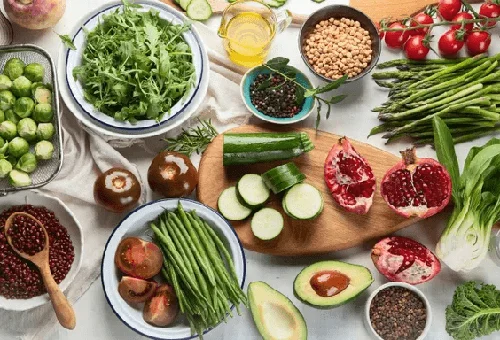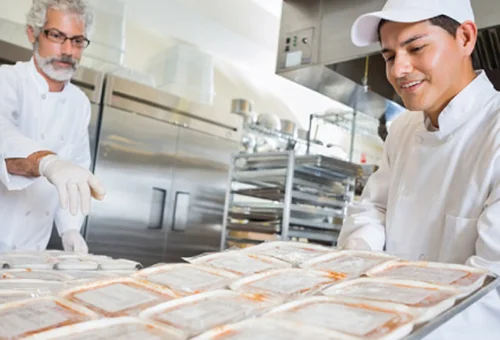Supporting local: 7 reasons why top restaurants opt for local suppliers
-
Previous Post
Becoming the best restaurant manager: Essential tips
-
Next Post
Quick check who’s on your guest list!
More and more restaurants are sourcing their goods from local vendors. The local food movement has gathered substantial steam in recent years and now includes everything from farm-fresh produce to artisanal meats and specialised goods. But why do top restaurants favour regional producers? We’ll look at seven strong explanations for this trend, as well as the advantages it offers eateries and their patrons.
The superior quality of the ingredients is one of the main reasons top restaurants choose local. By sourcing locally, chefs often get fresh food and artisanal goods that are frequently manufactured or harvested only hours before arriving in their kitchens. The bright aromas and textures that result from being fresh, enrich the eating experience and leave patrons wanting more. Because local vendors take pride in their work, the outstanding ingredients they provide stand out on the plate.

Restaurant owners can benefit when working with seasonal foods from local suppliers, as it enables them to develop menus that change frequently throughout the year. Chefs can stay in touch with nature’s abundance to serve clients dishes that showcase the flavours of each season, embracing the local food scene. A meal created using seasonal products, such as spring asparagus and autumnal squash, offers diversity and curiosity, luring diners back for more.
Selecting local vendors supports the local economy and community in addition to the food’s ingredients. When eateries use regional ingredients, they directly support the expansion of local farmers, craftspeople, and small businesses. By developing these connections, restaurants integrate themselves into the neighbourhood, encouraging residents to stick together and support one another.
Restaurants are becoming more aware of the carbon footprint linked to food transportation as worries about environmental effects continue to rise. Restaurants can greatly reduce the distance ingredients travel by using local suppliers, hence lowering their environmental impact. This dedication to sustainability is in line with the beliefs of many diners today, who respect and support environmentally friendly enterprises.
Local producers frequently offer unique ingredients that are firmly ingrained in the local culinary heritage. Restaurants may create memorable and genuine eating experiences by introducing these distinctive offerings into their menus. These components add a feeling of place and narrative to the dish, whether they are handcrafted cheeses made by a nearby artisan or heirloom tomatoes from a nearby farm. Customers value the chance to sample regional cuisine and establish a connection with the neighbourhood while dining.

When restaurants deal directly with regional vendors, they build enduring ties that go beyond business. Through this relationship, chefs can express their unique requirements and preferences, resulting in products and services that are more suited to their demands. Local vendors are frequently more accommodating and willing to offer tailored solutions, improving the whole dining experience. These connections encourage teamwork and innovation, enabling chefs to realise their culinary visions while promoting the success of their suppliers’ companies.
Agility is essential for sustainability in the restaurant industry, which is characterised by constant change. Restaurant owners can benefit from the flexibility and rapid response times of local suppliers. Local suppliers might provide alternatives or suggestions in response to unforeseen circumstances like abrupt ingredient shortages or shifts in consumer tastes based on their in-depth knowledge of the local market. This adaptability guarantees that restaurants can uphold their standards and please their patrons despite difficult situations.
Top restaurants all over the world have started to notice a key trend: supporting local suppliers. The motivations for this movement are strong, encompassing anything from community support to sustainability to more flexible menu options and fresher food. By becoming local, eateries may forge a distinctive character, strengthen ties with suppliers, and offer superb culinary experiences that entice customers to return time and time again. So keep in mind the next time you eat out that by supporting a local restaurant, you’re supporting a vibrant community and a sustainable food system in addition to getting a good meal.

Unlock the tips that will help you stand out from the crowd and get more bookings!

Learn how to save time, reduce stress and fill your restaurant while you sleep!

Tableo’s design-savvy Marketing Executive, Stephanie blends UX expertise with creative flair. Lover of clean layouts and cornetti in Rome.

Tableo’s design-savvy Marketing Executive, Stephanie blends UX expertise with creative flair. Lover of clean layouts and cornetti in Rome.
Previous Post
Next Post










Call us
Malta: +356 2033 0096
UK: +44 845 154 3698
USA: +1 (415) 231 3696
Spain: (900) 645443 (Free)
Argentina: +541151990515
Italy: (800) 769470 (Free)
Lithuania: +370 (6) 4721122
Poland: +48732083322
Resources
Call us
Connect with us
About us
Resources